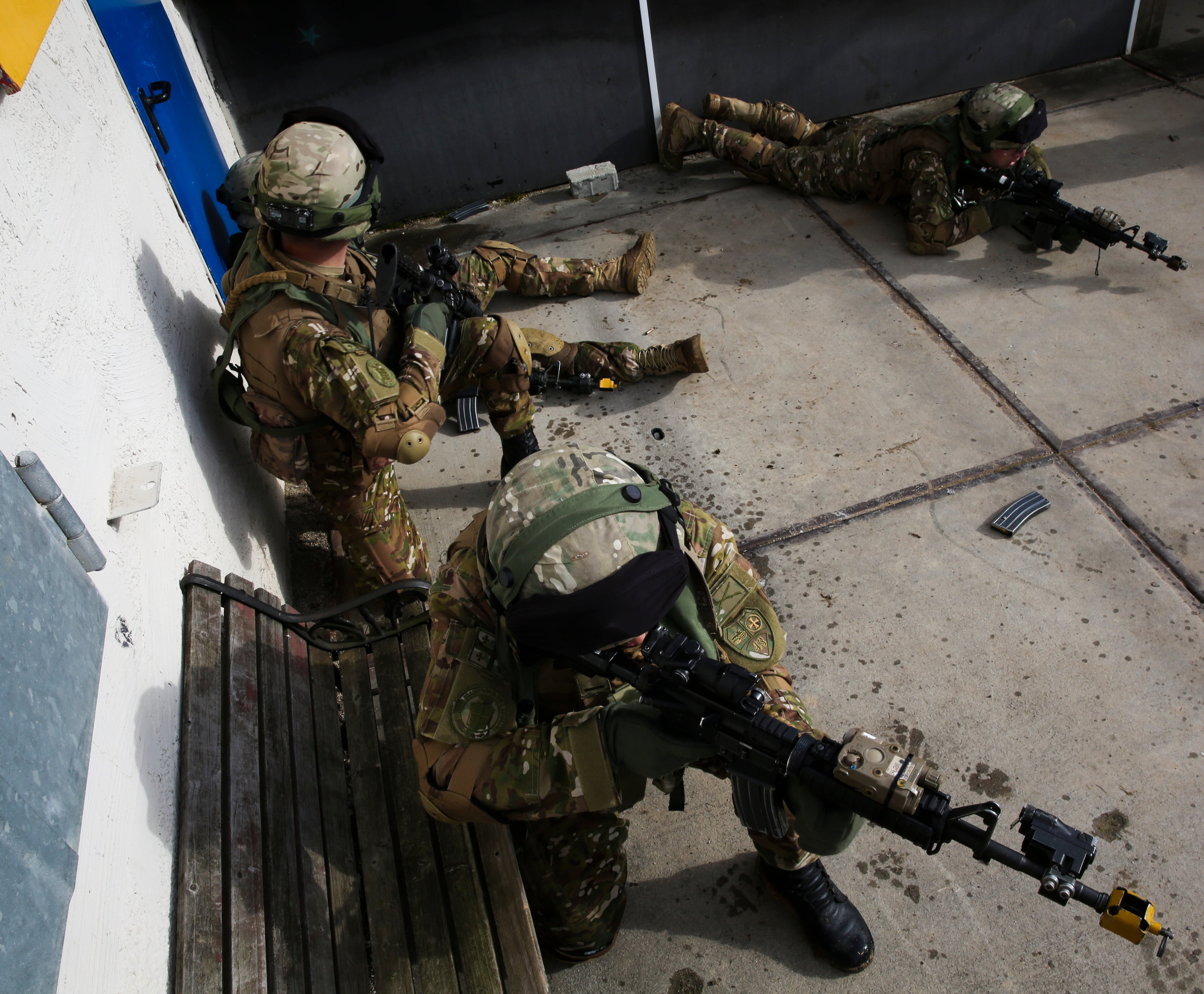A fresh team group of Marines is crossing into Afghanistan this week month, bound for Bagram Airfield alongside the 43rd Georgian Infantry Battalion.
Known as the Georgia Liaison Team, the 18-man group provides support and advice to the Georgians as they assume security operations at what once served as the largest U.S. installation in Afghanistan. Though officials announced an end to the Corps' main role in the war there in October, small teams groups of Marines like these mean the service retains a presence inside the country.
The Georgia Deployment Program, slated to end in fiscal 2016, began in 2009 to prepare Georgian troops to join NATO missions in Afghanistan. The liaison teams typically are pulled together from a mix of units, usually from the rReserve, though teams comprised of active-duty Marines can exist.
"We are training the Georgians to provide inside the wire and outside the wire security ... and force protection," said Lt. Col. William Shannon, European regional plans chief at Marine Corps Force Europe and Africa, which oversees the program.
"We are there embedded with the Georgians to advise and enable them. You don't have Marines going out on their own or by themselves [as a group]," he added.
Still, the deployment comes with risk. The team this latest group replaces suffered casualties while serving alongside the Georgians in recent months.
In one case, a Marine suffered injuries after a joint Georgian-U.S. patrol took a hit from a motorcycle laden with an improvised explosive device. As a Navy corpsman worked on two seriously wounded Georgians, the hurt Marine organized a medical evacuation.
The unidentified corpsman and Marine received Georgian medals for their actions, officials said.
Safety, though, remains at the forefront of leaders' minds, said Shannon said."We're always concerned about the force protection of our Marines," he said. "That's at the top of the priority list."
To prepare for the usually seven-month deployment, Marines tapped for the mission undergo about five months of training with their Georgian counterparts in their home country. That's where the Georgia Training Team, another group of Marines, comes into play, said Lt. Col. John Litton.
These Marines, about 40 of them, must exhibit patience and maturity, he said. Marines need to understand they're not directing Georgian troops, but working alongside them, he said.
"If I can handpick guys, one, they have to have a lot of patience; this is not the type of mission with the type a guy where everything is done a certain way," Litton said. "You're working with a [Georgian], with him, you're not directing him."I have sergeants advising more senior officers.," he added. These guys have to be mature and interact with these [Georgians] in a way that they communicate effectively."

Soldiers from the 43rd Georgian Infantry Battalion post security as another soldier attends to a simulated casualty during the Mission Rehearsal Exercise at the Joint Multinational Readiness Center, Hohenfels, Germany, Feb. 22. The Mission Rehearsal Exercise is a month-long culminating event in which soldiers from the 43rd Georgian Infantry Battalion are tested in their abilities before being deployed to Afghanistan with a small team of Marines.
Photo Credit: Lance Cpl. Calvin Shamoon/Marine Corps
Training culminates in a month-long exercise at the Joint Multinational Readiness Center in Hohenfels, Germany. The rehearsal puts the Georgians in contact with Afghan role players, and has them cooperate with U.S. officials to call in air strikes and arrange evacuations.
They also patrolled a training area resembling Bagram, complete with a bazaar, and conducted missions in simulated Afghan villages. Moldovan troops took on the role of members of the Afghan National Army and Afghan Police Force, officials said.
"What the [exercise] is designed to do is put the Georgians in an environment where they deal with civilians in the battle space while having a living, breathing enemy in the form of the [opposing forces] that's working against them," said Maj. James Geiger, who leads the liaison team, said in a statement.
With that done, the joint Georgian-Marine group's next stop is Afghanistan.
Litton described the Georgians as good allies and tough fighters.
"One of the things we all took out of it is that the Georgians, they have a long history of being warriors. They aren't afraid to fight. That also goes along with how they support our mission in Afghanistan," he said. "They provide more troops with less caveats than anyone else and they've been doing that for a while. … When you look at these guys they're warriors, they want to be warriors."





